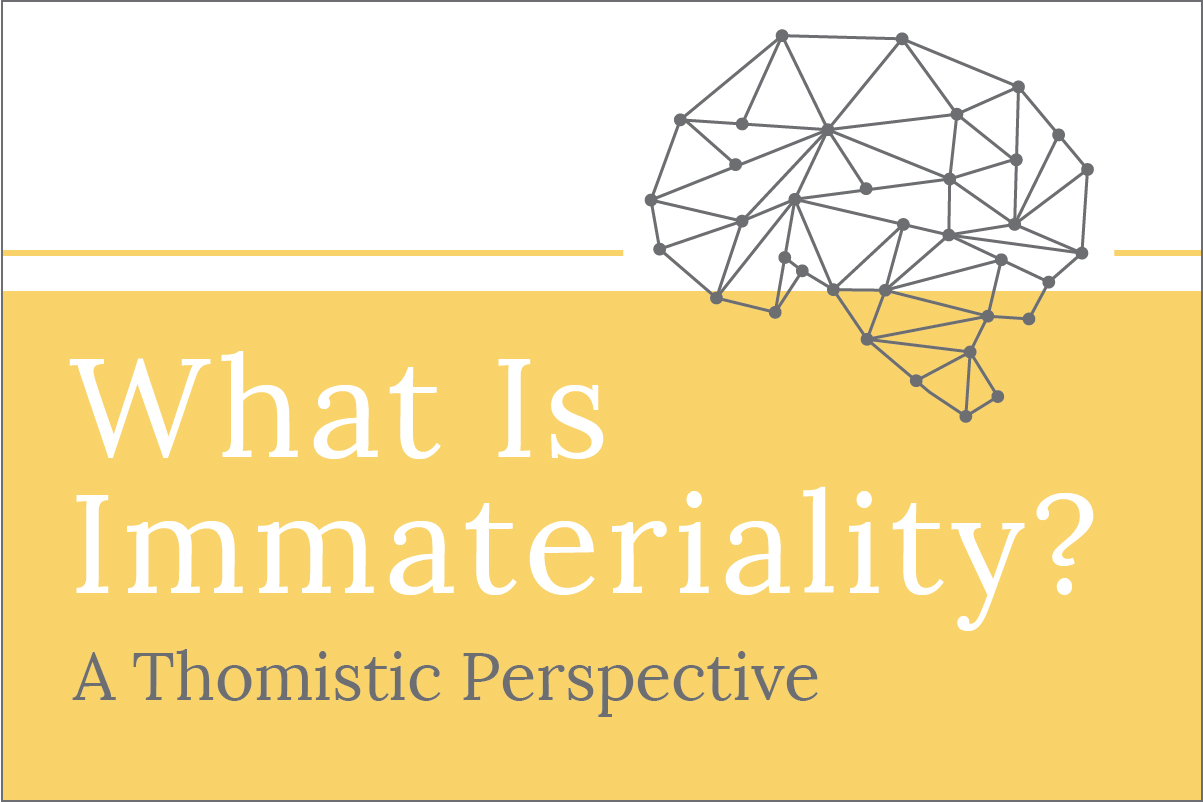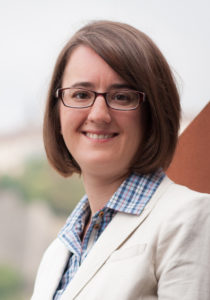
- This event has passed.
Thomistic Perspectives "Understanding Consciousness" Series

Date
September 12, 2019 at 7:00 PM - 8:00 PM EDT
Location
Physical Sciences Building Room 120
Speaker
Dr. Therese Cory
The debates about whether there are any immaterial entities are well-known. But not many people stop to ask the more fundamental question: What does it mean to be immaterial? What are we even asking about when we ask whether, e.g., our minds are immaterial or not? From spooky bodies to self-knowing boxes, this talk considers what immateriality is, drawing on the thought of Thomas Aquinas, and examines why Aquinas thinks that thought is an immaterial reality. A reception that is free and open to all will follow the lecture.
 Dr. Therese Cory
Dr. Therese Cory
John and Jean Oesterle Associate Professor of Thomistic Studies at the University of Notre Dame
I work on medieval theories of mind, cognition, and personhood, with special focus on the thought of Thomas Aquinas and his thirteenth-century interlocutors. Themes that animate my research include, e.g., the nature of consciousness, the history of the self/person and concepts of subjectivity, what it means exactly to be “immaterial,” Aristotelian hylomorphism and how it applies to mind, and problems connected with mental representation and intentionality, the relationship of imagination and intellect, and medieval theories of light and vision. In approaching these themes, I’m particularly interested in uncovering different ways of “modeling” the mind and its activities.
Another central research interest of mine is how Islamic philosophers–such as al-Farabi, Averroes, Avicenna, and the author of the “Liber de causis”–shaped Scholastic thought in medieval Christian Europe. Getting into the mindset of medieval philosophers, on my view, requires a scholarly community that is committed to rediscovering the broader shared philosophical tradition that connects Muslim, Jewish, and Christian thinkers in the Middle Ages, and tracing its patterns of development from late antiquity. To that end, I serve on the executive committee of the “Aquinas and the Arabs Project.”
I am also a member of the Pontifical Academy of St. Thomas Aquinas.
Current research projects:
I’m currently finishing a book tentatively titled Aquinas’s Metaphysics of Intellect: Being and Being-About. The book argues for a metaphysical approach to cognition in Aquinas. It examines overlooked Neoplatonic elements in Aquinas’s philosophy of mind (especially the notion that intellectuality and intelligibility are two descriptions of a single kind of self-manifesting being), as opening up new strategies for addressing problems concerning intentionality, representation, reflexivity, and immateriality.
Other current projects include mental / intentional being in the 13th century, the metaphysics of light in 13th-century theories of vision, the “identity thesis” in Greek philosophical thought, and the process of intellectual development in Averroes’s Long Commentary on De anima (with Katja Krause, MPIWG Berlin).
PDFs of my past (and sometimes current) research are available at my Academia page.
